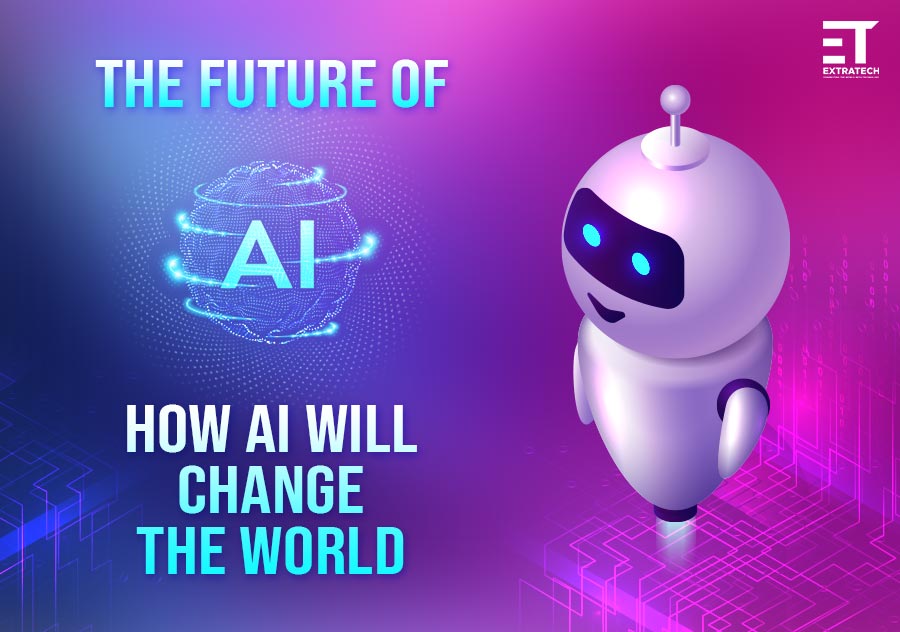


2023-06-28
Artificial intelligence (AI) has become a buzzword in recent years, capturing the imagination of scientists, engineers, and the general public alike.
From self-driving cars to intelligent virtual assistants, AI is transforming the way we live and work.
But what exactly is AI, and how will it change the world?
We will explore the brief of AI and its impact here.
Keep reading!
At its core, refers to the ability of machines to perform tasks that normally require human intelligence. It encompasses a range of technologies, including machine learning, deep learning, neural networks, and automation. These technologies enable computers to analyze vast amounts of data, learn from patterns, and make informed decisions without explicit programming.
One of the most exciting aspects of AI is its potential to revolutionize various industries. Take, for example, autonomous vehicles. Self-driving cars powered by AI have the potential to reduce accidents, ease traffic congestion, and improve transportation efficiency.
In the healthcare sector, AI can analyze medical records and diagnostic images to assist doctors in making accurate diagnoses and suggesting personalized treatment plans.
AI also holds immense promise in the finance industry. Advanced algorithms can process massive amounts of financial data and predict market trends with greater accuracy, enabling investors to make informed decisions.
In the education sector, AI-powered systems can provide personalized learning experiences, tailoring educational content to individual students’ needs and helping them reach their full potential.
While the potential of AI is undeniable, it also raises ethical concerns. One pressing issue is data privacy. As AI relies heavily on data, the collection and use of personal information must be conducted responsibly and with individuals' consent. Additionally, biases in algorithms can perpetuate societal inequalities, highlighting the need for diverse and inclusive data sets to train AI systems.
Another concern is job displacement. As AI automates certain tasks, it may lead to job losses in certain industries. However, AI also has the potential to create new jobs and enhance human productivity. To mitigate the impact of job displacement, reskilling and upskilling programs should be implemented to ensure a smooth transition for the workforce.
Furthermore, accountability for decisions made by AI systems is a complex issue. When AI systems make decisions that impact people's lives, it is crucial to establish clear guidelines for accountability and ensure transparency in the decision-making process.
Addressing the ethical implications of AI requires collaboration between governments, regulatory bodies, and the tech industry. Countries around the world are formulating AI policies and regulations to govern its development and use. These policies aim to strike a balance between fostering innovation and protecting citizens' rights.
International cooperation is also crucial to establish ethical AI development and use standards. By sharing best practices and knowledge, countries can work together to create a global framework that promotes responsible AI.
Looking for more ways to secure a job in the IT field? Check out our blog on “Top 7 Technical Skills to Master” here.
As we look ahead to the future, the possibilities for AI are boundless. AI-powered virtual assistants, like Siri and Alexa, are already becoming more human-like, understanding natural language and providing personalized assistance. In the next decade, we can expect these virtual assistants to become even more integrated into our daily lives, assisting us in various tasks and enhancing our productivity.
Autonomous vehicles are also poised for widespread adoption. As AI algorithms become more sophisticated and reliable, self-driving cars will become a common sight on our roads, offering safer and more efficient transportation.
In the healthcare sector, AI will play a pivotal role in predictive analytics. By analyzing vast amounts of patient data, AI systems can identify patterns and predict potential health issues, enabling proactive and personalized care. This will not only improve patient outcomes but also help in the prevention and early detection of diseases.
Moreover, the manufacturing industry will experience a significant transformation with the implementation of AI. Smart factories powered by AI will optimize production processes, improve quality control, and enhance overall efficiency. AI-enabled robots and automated systems will work alongside humans, taking on repetitive and physically demanding tasks, while humans focus on higher-level decision-making and creativity.
Another area where AI will profoundly impact is the development of smart cities. With the advent of the Internet of Things (IoT) devices, AI will facilitate the seamless integration of various systems, such as transportation, energy, and waste management. This integration will lead to improved resource allocation, reduced energy consumption, and enhanced urban planning.
Looking to learn ethical hacking? Our Cyber Security Job Ready Program has got you covered.
The future of AI is bright and filled with immense possibilities. It has the potential to revolutionize industries, improve efficiency, and enhance the quality of our lives. However, as we embrace this future, it is crucial to ensure AI’s responsible development and use.
We must prioritize ethical considerations such as data privacy, diversity, and accountability. Governments and regulatory bodies have a significant role to play in establishing policies and regulations that promote the ethical use of AI while fostering innovation.
Take action now with Extratech! Launch your career in cybersecurity, web development, network and support, or data analytics. Don't just dream it-Visit Extratech today and turn your tech dreams into reality.